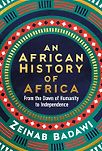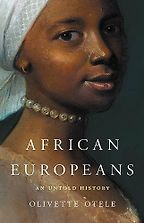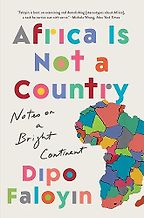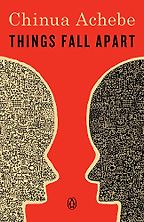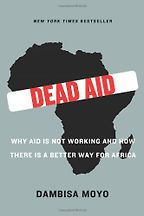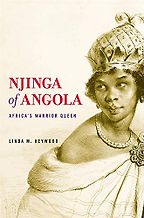Perhaps you could first talk us through the significance of history being told by African writers.
I believe that any history that omits the viewpoint of the people of that region misses something completely. This is particularly true of Africa. If you apply a Western lens, Western value systems, Western judgments to African history, you will not understand Africa properly. You need the African voice: African scholars, archaeologists, historians, anthropologists must tell their own story. This is better history.
It’s not about supplanting the work of the Africanists—that is, non-African historians. It’s about supplementing their work and bringing in an important dimension. History is better if it is diverse and inclusive.
More importantly, you have to accord people the respect of telling their own story. By not infantilising them to the point where you have outsiders relating their own history, which is what has happened with Africa. Asians have told their own stories. Latin Americans also. There have been great historians from these regions. But others have often claimed Africa ‘has no history.’
This is why I was so keen to write my book An African History of Africa, and—where possible—use African sources. I’d say 75% of the people I quote are African. As somebody born under an African sun, I felt this was very, very important. Otherwise, it would be a perpetuation of a system in which Africa has been cast as the junior partner. It felt like a subtle revolutionary action on my part, in giving Africans agency to tell their own story.
Absolutely. And you’ve seen a lot of success. An African History of Africa has been a Sunday Times bestseller and was recently shortlisted for the Nero Book Award for Nonfiction.
I wanted to read, but couldn’t find, a grand sweep of the continent’s history over many centuries, picking up on great moments from African history. It is a celebratory book.
There is a famous 2005 essay by Binyavanga Wainaina called ‘How to Write About Africa,’ which mocks the many stereotypes that appear in outsiders’ portraits of the continent. He suggests subtitles include words ‘timeless’, ‘primordial’ and ‘tribal’. He was criticising literary travelogues and reportage, but do you find these same clichés popping up in African history books too?
Yes. Dipo Faloyin—who we will come to—was inspired to write his book Africa is Not a Country by that essay.
I’ve been very aware of these stereotypes, as someone who has worked in the media for several decades now. Having been born in the Sudan, I moved to England at two, going on three. I was aware of the great monuments we had in Sudan—the pyramids and temples—and the amazing artefacts in the Sudan National Museum. But I realised that people abroad reduced Africa to a place that was simply conflict ridden.
I think I was most aware of it in 1985 during the Live Aid initiative. I was traveling around Sudan at the time making a documentary about the politics of food. There was the terrible famine in Ethiopia, I was looking at it from Sudan, and it struck me how people there were saying the government in Khartoum should be doing, X, Y or Z to help. Then I came back to Britain, and it was all about stopping the famine ‘in Africa’ by rattling your tins and singing songs. I thought: the people in Sudan had rightly identified that those people who were responsible should be held accountable, not by the humanitarian activists outside the continent but by their own people and leaders. It’s dereliction of leadership that has brought Africa to these ills.
That’s not to say that you shouldn’t embark on humanitarian assistance for crises in Africa. Look at Sudan now: I’d be very happy if there was more humanitarian assistance going in. But there was a dissonance between how the people saw their situation and how Westerners did. I’ll come to this when we discuss the Dambisa Moyo book.
So yes, I’ve been aware of this for a long time.
Let’s look at the books you’ve chosen to recommend. I’d love to hear first about African Europeans: An Untold Story by Olivette Otele, which is described as “the overlooked history of Africans in Europe, starting from the third century.”
I’m the president of SOAS, University of London, and I’m very glad to say that Otele is a professor of history at SOAS. She was the first woman of African descent to become a professor of history in the United Kingdom. That that only happened in 2017 says a lot.
She focuses a great deal on African Europeans. She’s Cameroonian born, so obviously a fluent French speaker, and she looks a lot at France, Holland, and Britain. That’s part of what I like about this book, it’s not UK-centric, it’s Europe-wide. It shows that theories of racial inferiority were not just confined to the UK. Obviously the transatlantic slave trade was something practiced by many or several European nations.
She shows there were people of African descent living in Europe right from the Roman era.
She notes that North African leaders were prominent in the Roman empire, and that black Christians were welcomed by and celebrated within the medieval church.
The Romans conquered Egypt. Cleopatra was the last of the Ptolemaic pharaohs; they were defeated by Octavian around 30 BCE. Then the Romans were present in in North Africa for a long time. So a lot of the indigenous people of North Africa—the so-called ‘Berbers,’ the Amazigh—became very involved in Roman life. And one of them, Septimius Severus, ruled. He died in Britain, but he was North African. There were a lot of Africans who rose to positions of prominence across Europe across the decades.
The theory of eugenics really took hold in the mid-19th century, which ascribed Africans inferiority simply by dint of being Africans. When you see these people rising to positions of importance, It counters that myth that Africans were not as intelligent or as skilled as Europeans.
“If anybody were to read only one book about Africa, I’d put Things Fall Apart right at the top of my list”
So many of the photographs that we have in the late 19th century of people of African descent show them in positions of servitude or as entertainers. Again, she counters that. She looks at the case of, you know, Sarah Baartman, who was known as ‘the Hottentot Venus’—a very derogatory title. She was paraded naked, and people just saw her as an exhibit, as something zoologically. But, interesting, Otele says that she did have some agency, that she could decide where and when she was going to be exhibited.
The book is revelatory. I think everybody should read if they want to have a better understanding of the presence of Africans in Europe.
We’ll talk next about a book that we touched on earlier: Africa is Not a Country by Dipo Faloyin. Can you talk us through the concept of this book?
Dipo is largely addressing contemporary Africa, but he starts the book with the Berlin Conference of 1884-1885 to show how African countries only really came into being at that time—with some exceptions, like Egypt. I suppose he wants to show how the difficulties that Africa encountered were set in motion by that conference, and how Africans were excluded. Even though slavery had been ended for some decades by the time of the Berlin Conference, that didn’t mean it was the end of Africa’s ills. The colonial powers were still there, carving up Africa for their own interests.
So he wants to show how there has been a continuity of that unfair balance of power between Europeans and Africans. He also looks at recent history of African leaders—Idi Amin, Muammar Gaddafi, and so on. It’s not a history book exactly, but he picks up on the slanted way that the world looks at Africa, and he does that by focusing on the coups, the wars, the famines, and how these negative perceptions of Africa have become the whole perception.
He tries to show that Africa is a varied continent of 54 countries, all with different histories, different languages, different peoples, different ethnicities. Because it is still the case that, if there is a coup in West Africa, it will stop investors investing in East Africa or Southern Africa, because they see it as all one.
I suppose this is useful as a correction for anyone learning more about African history—to push them to question assumptions they don’t realise they are making.
He takes the knee-jerk view of Africa and debunks it.
We have something a bit different for your third book choice, which is Things Fall Apart by Chinua Achebe. It’s a modern classic, a work of historical fiction published in 1958 and set in pre-colonial Nigeria. Perhaps you’d tell us about the novel, and why you wanted to recommend it as part of this selection of books on African history.
Yes, this is not a history book, but it is absolutely compulsory reading for anybody who wants to understand the impact that the Europeans had on Africa—particularly those of the missionaries. The colonial officers were accompanied by missionaries intent on ‘civilising’ Africa. Chinua Achebe really captures in this masterpiece the tensions of that period.
We still discuss the impact of the Christianising mission of the colonial officers in the building of institutions. Some people say, Look, it was good, the Brits came with their bookkeeping and accounts and literacy. But Achebe writes about how African values were eroded, people began to question the validity of their own value systems, and to advance they had to, essentially, become black British men and women, or black French men and women. Achebe captures all this—the rejection of African traditional beliefs and value systems—and in my view it is a book that should be read alongside the histories, because it shows how these tensions are still relevant today.
Because things literally fall apart. Their centuries-old way of living was completely challenged by these new norms. The hero ends up committing suicide. It’s a very, very tragic story, because he felt that all he had aspired to, in the end, was reduced to nothing.
I was talking to the Vice Chancellor of Lagos University a few months ago. She was wearing her beautiful African clothes, and she said: A few decades ago, I would never have turned up like this, I would have been in my business suit, you know? Now, she said, look at the students; they are all wearing their African clothes, African hairstyles. They are rejoicing in their Africanness. They want to forge a future based on their African traditions.
This book is very important. It is a historical document. I don’t know how old he would be if he were alive today.
About ninety, I think.
But if you think that his grandmother would have been telling him stories about life before the British, and he would have used a lot of that knowledge. He wrote the book when he was 28.
So it is, in my view, a historical book in that it is based on oral tradition. And the kind of debates that historians have to this day is very much supported by this book.
I remember there was some controversy in Africa over his choosing to write in English. I wonder if there is a tension there, more generally, when Africans write about African history: Who is the intended audience? Are they writing for African readers, or to change the global reputation of Africa? Perhaps both.
Yes, I think it can be both. This is a debate that a lot of writers—not just African—face. There is this idea that you should preserve your language. Ngũgĩ wa Thiong’o, the Kenyan writer, wrote in English, then switched to his native Kikuyu. So this is a debate that is often had.
I think that it doesn’t matter Chinua Achebe didn’t write it in his native language, Igbo. It was translated into Nigerian languages, and many other languages because it is a book with international resonance. I think it’s a bit of a sterile debate. Because books can be translated.
Having said that, I do believe in the preservation of local, indigenous languages. We are seeing ‘first language attrition’ right across Africa, in Francophone, Anglophone and Lusophone countries. But I don’t think Chinua Achebe writing in English distracts from his masterpiece. If anybody were to read only one book about Africa, I’d put Things Fall Apart right at the top of my list.
Let’s talk next about Dead Aid, a polemic on humanitarian aid by the economist—and previous Five Books interviewee—Dambisa Moyo. I guess we are looking at relatively recent history.
This came out about 15 years ago. What Dambisa was saying in this book is much more common currency now, but when it came out—by a Zambian economist with a PhD, who’d worked at the World Bank—people sat up and paid attention.
She put a lens on the fact that humanitarian assistance is the way that many people in the West engage with Africa, and that’s a problem, because it exaggerates the importance of humanitarian assistance. It’s just one small tool in a big development toolbox. She then went further, to say: not only is aid not as significant as you think, but it’s also actually quite pernicious.
I wouldn’t wholeheartedly agree with that. My view, from everything I’ve read, is that some aid works. Some doesn’t. But I think she had to exaggerate to make the point. I think there’s a role for aid, but she brought out the arguments against it quite clearly.
“No country in the history of the world has been developed by outsiders”
Development aid is quite different from humanitarian aid. You know, if there’s flood or a famine, then of course you need to send in money, food. But she was looking at development aid mostly, and she said: if you have too much assistance for health and education programmes, it absolves the leaders of these countries from spending money on these things. So they go and put lots of money into their defence budget, or they pilfer it—it lets them off the hook. This is not good, obviously, because at the end of the day, the only thing that will make Africa develop is responsible, accountable leadership. No country in the history of the world has been developed by outsiders. Let the citizens rise and say: We’re not being treated properly in hospitals. Where’s the money? You’re selling oil, you’re selling copper, where is all this money going?
That’s what is so good about Dambisa Moyo’s book, it brought home these arguments. She gave a lot of case studies about how aid can prop up irresponsible governments, andabsolve them from having to respond to their citizens. Sometimes it also leads to duplication of efforts due to lack of coordination. That’s why she called the book ‘Dead Aid,’ and I think I was a useful response to what was going on at the time.
Your final book recommendation is Linda Heywood’s Njinga of Angola: Africa’s Warrior Queen. And I think you wanted to talk about the significance of the African diaspora writing as well.
Yes, so Linda Heywood is an African American academic. I think it’s important to include the work of the African diaspora, be they in the Caribbean, Latin America, North America or Britain. This all comes under the banner of Africans telling their own history, even if Linda Heywood is disconnected from the continent of her ancestors. It’s important to include that diaspora voice, and they bring something interesting to discussions about African history because they have the benefit of seeing both sides, or being able to relate the history of her ancestors in a way that a Western audience will understand. So I think she’s a very important voice, along with all the fine African scholars in Western universities.
Queen Njinga was born in 1583 and died in 1663. She was Queen of the Ndongo kingdom, a vassal state of the kingdom of Kongo —one of the main African empires, established in the 1300s. Njinga is a very good example of strong African female leadership. Her name, in the local language, means ‘to twist’. She was born with the umbilical cord around her neck, which denoted that she was going to be a great leader, a great person.
Her father, the king of Ndongo, saw that amongst his children she was the most able and skilled. Although she had a brother who was the heir, he would take her to meetings with elders, judicial occasions, and so on. So she learned statecraft, and she was also a very effective soldier and fighter. She was an exceptional person.
When her brother was king—as Heywood relates in the book—Njinga was sent by her brother to Luanda, about 250 kilometres away from their capital Kabasa. She went in all her finery. And when she arrived in Luanda, the Portuguese governor of Luanda told her to sit on the floor. He was sitting in this beautiful chair, embossed velvet and gilt. She refused to sit on the floor, as obviously this would show a subordinate status—so she commanded her tallest female attendant to go on all fours, and she sat on her back.
After her brother killed himself, she killed his son and became queen. So she was ruthless. She had said to the governor of Luanda: Don’t enslave our people, we’ll give you enslaved people from our enemies. So the elites were involved in slave trading. The Portuguese turned against her and she outwitted them every which way, and died a peaceful death in her early eighties with her crown on her head.
She became a Catholic—was baptized—but she also maintained her own traditional beliefs. So it harks back to what we talked about with Chinua Achebe’s book; even nominally African Christians, to this day, will indigenize their own beliefs into Christianity. They find their own form of Christianity by marrying them. I saw this all over Africa. And the Achebe book is so good because it shows this rejection was not wholesale. Njinga is a very good example of that also.
It’s a very thick book, with a lot of sources. The Portuguese wrote about Queen Njinga a great deal. But what Linda does—which is what most African and African diaspora historians do—is also rely on oral tradition, and what that tells us about Queen Njinga. That’s very important too. She pieces together the life of this remarkable, as Heywood calls her, warrior queen.
It shows how, as the Europeans began encroaching on African land, it’s not as though the Africans took it lying down. They resisted at every turn. They lost, in the end, because of the superior firepower of the Europeans, but they resisted. Njinga’s story is one of resistance and strong leadership.
Jada Pinkett Smith, the wife of Will Smith, produced a TV documentary series based on Queen Njinga. I’m pretty sure she used Linda Heywood’s book as part of her source material . And that shows you how Linda being African American is very very important, because it helps popularise African history and put it out into the mainstream, to the point where a member of the Hollywood aristocracy wants to make a series about it. As a result of Linda’s book and the TV series, many more people will have heard about this strong African queen.
Do you feel that African voices are being heard more clearly?
You know, we started off with people like David Olusoga writing about Black Britons. That started making people aware of African stories. There was the controversy around the Coulson statue, the Black Lives Matter movement, I think all these things do represent a sea change. Restitution is a very current debate. Dipo Faloyin talks about that in his book—how much British institutions benefitted from the profits of slavery.
All of this has come together to put the focus on the African diaspora. In my book, I look at something different—which is African history in Africa. For me, the pre-colonial era is very important. To say: Actually, Africa is part of the global story. You should know about African history, and it’s not all about colonialism and slavery. It’s not all about suffering.
While Europe was being decimated by the Black Death, these mighty civilisations were flourishing in Africa. Now everybody thinks Sudan is just a conflict-ridden country with nothing good coming out of it, but hundreds of years before the common era it was a regional superpower.
My additional point is that it shouldn’t be left to the outsiders to tell that story, because they will never tell it properly. You know that old African proverb? ‘When the lions have historians, the hunters will cease to be heroes.’ That’s true in many ways. And I’ve been very heartened by the response to my project.
Aside from ancient Egypt, I don’t think there’s much African history on schoolkids’ curriculums. And that’s important—because Africans are not only the descendants of slaves, we are much more than that. We have a fine history, and I think that’s very important.
Interview by Cal Flyn, Deputy Editor
January 7, 2025. Updated: January 9, 2025
Five Books aims to keep its book recommendations and interviews up to date. If you are the interviewee and would like to update your choice of books (or even just what you say about them) please email us at [email protected]
Five Books interviews are expensive to produce. If you've enjoyed this interview, please support us by donating a small amount.

